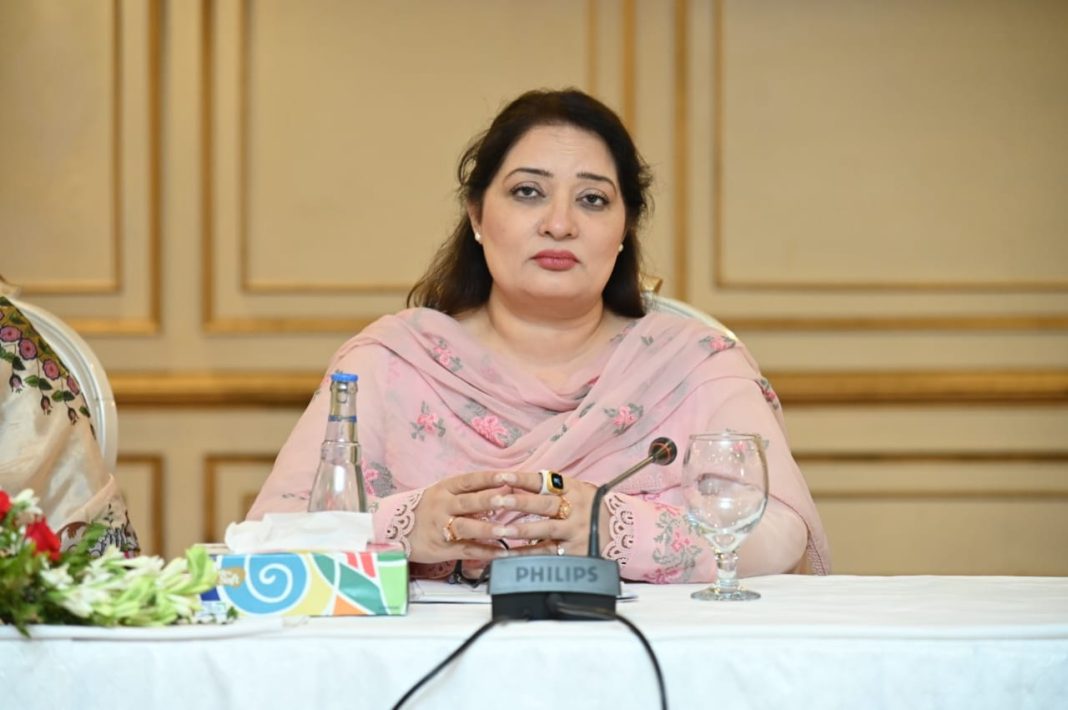
Islamabad, July 9, 2024 — The Coordinator for the Prime Minister on Climate Change, Romina Khurshid Alam, emphasized the importance of promoting local scientists and researchers through capacity building to drive indigenous sustainable urbanisation and mitigate urban flooding risks. Speaking at the one-day workshop on Urban Floods: Implications for Resilience, organized by the Pak-German Climate & Energy Partnership and SDPI, she highlighted the need for climate-conscious infrastructure development and research-based policies for informed decision-making.

Alam urged the forum to share recommendations with the Ministry of Climate Change and praised the collaboration between policymakers, practitioners, and academia in co-creating evidence-driven solutions. She emphasized incorporating indigenous knowledge in climate risk mitigation and training youth and media to enhance climate resilience.
Advisor Sobiah Becker from the Pak-German Climate and Energy Partnership noted Pakistan as the first country with which Germany forged a partnership for climate action, stressing a balanced approach to adaptation, resilience, and energy transition.
Associate Research Fellow Dr. Zainab Naeem from SDPI highlighted the vulnerabilities exposed by the 2022 floods and called for sustainable urban development to enhance resilience.
Dr. Zeba Sathar from the Population Council Pakistan pointed out the neglected role of population in climate resilience interventions, citing high-risk districts and vulnerable populations.
The workshop featured case studies by Dr. Irfan Rana from the University of Nevada and Dr. Mattia Marconcini, German Expert, focusing on risk communication and the development of robust risk mapping platforms. Group activities and panel discussions engaged experts in addressing policy, legislation, and capacity gaps in urban flooding.
Wolfgang Hesse from GIZ Pakistan underscored the critical understanding of urban floods and resilience, noting Pakistan’s vulnerability and the severe impacts of the 2022 floods. He emphasized the need for enhanced climate resilience and institutional capacity strengthening under the Pak-German Climate and Energy Partnership.
In closing, Dr. Shafqat Munir, Deputy Executive Director of SDPI, highlighted the risks posed by urbanisation and the importance of adopting modern technologies and anticipatory actions to address climate change impacts.
BY: The Times Union







